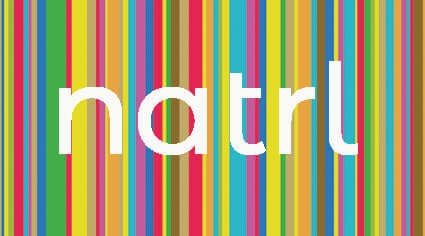As interest in “ancestral” skincare traditions rises, we’ve noticed tallow — rendered animal fat, often from cows or sheep — gaining popularity in some corners of the skincare world. While it’s marketed as natural, nourishing, and even trendy, at natrl skincare, we believe tallow doesn’t belong in ethical, forward-thinking skincare — especially not in facial products.
Here’s why we don’t use tallow in any of our formulations, and why your skin (and conscience) will thank you for choosing a plant-based alternative.
❌ Tallow Is Not Cruelty-Free
Let’s start with the ethical elephant in the room: tallow is a by-product of the meat industry. It’s derived from the rendered fat of slaughtered animals — usually cattle or sheep — making it fundamentally non-vegan and not cruelty-free. While some claim it’s “sustainable” because it uses the whole animal, this overlooks the fact that commercial meat production is one of the most resource-intensive and ethically fraught industries on the planet.
At Natrl Skincare, we believe beauty should never come at the cost of animal welfare. Our range is proudly vegan, offering cruelty-free alternatives that align with conscious, compassionate living.
⚠️ The Production Process: Far from Gentle
Tallow is made by slowly heating animal fat to separate the pure fats from impurities. This rendering process often involves high temperatures and multiple refinement stages to eliminate odours, contaminants, and bacteria.
This isn’t the kind of “natural” that your skin benefits from — it’s the kind that requires intense industrial processing to become usable. In contrast, our plant oils (like hemp, jojoba, avocado and rosehip) are cold-pressed, preserving their delicate nutrients and skin-loving properties without chemical intervention or extreme heat.
😐 Not Truly Non-Comedogenic
A popular myth is that tallow is non-comedogenic and safe for acne-prone skin. The truth? Tallow’s comedogenic rating is debated. Its composition, while similar to human sebum, can still clog pores, particularly for those with sensitive or oily skin types.
In fact, the saturated fat content in tallow may be too heavy for delicate facial skin, leading to blocked pores and breakouts — especially if you’re already prone to congestion or hormonal acne.
By contrast, plant-based oils like hemp seed oil, squalane (from olives), or rosehip are naturally non-comedogenic, lightweight, and rich in essential fatty acids that support skin regeneration without suffocating your pores.
🌿 Why Plant-Based Wins
Choosing plant-based skincare is more than just an ethical choice — it’s a performance one, too. Botanical oils are packed with vitamins, antioxidants, and skin-identical lipids that help calm inflammation, boost hydration, and encourage a healthy skin barrier.
Our Natural Botox Facial Moisturiser, for example, uses sustainably sourced botanicals like sea buckthorn, evening primrose, and hyaluronic acid — delivering real results without animal derivatives or filler ingredients. It’s gentle enough for daily use, and effective enough to support your skin’s long-term health and glow.
In Summary
While tallow may have historical roots in skincare, it’s no match for today’s ethical, skin-friendly, and eco-conscious alternatives. At natrl skincare, we’re committed to plant-powered formulations that nurture your skin without compromising your values.
Because beautiful skin shouldn’t cost the Earth — or an animal’s life.
Explore our vegan skincare range
Further exploring Tallow, why some people are returning to it for skincare, and the downsides you may experience, can be done through this external link


 Whatsapp us!
Whatsapp us!